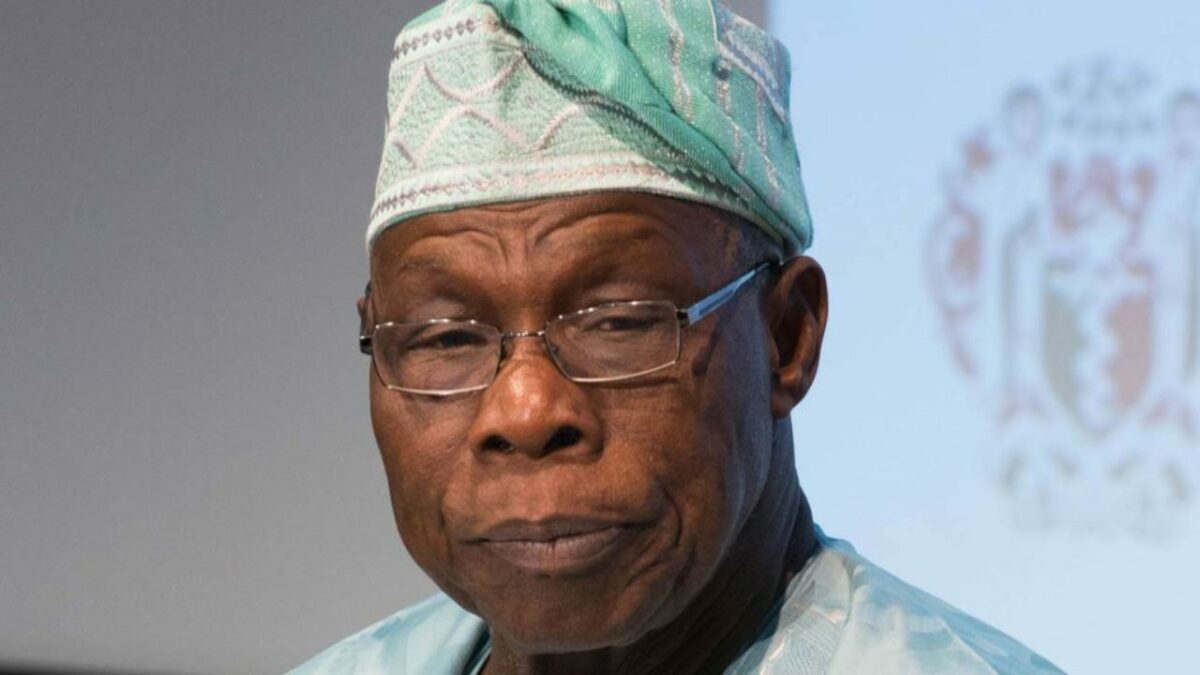Former President Olusegun Obasanjo recently warned that the nation is more divided than ever on ethnic grounds. This is actually not true. Although Nigerians are politically divided along ethnic lines, they are more than ever united in suffering irrespective of ethnicity! Eight years of economic mismanagement have reduced them to poverty and wretchedness. Peace-loving and long-suffering Nigerians are discussing nationwide in friendly sympathetic tones, united in complaining about the previously unimaginable degree to which they are suffering!
Be that as it may, what is true about Obasanjo’s statement is that the insults being hurled by political actors are becoming less restrained, less refined, more tribal and more worrisome. The nation’s increasing “divisiveness” relates to insults hurled by political jobbers it’s not reflected in the lives of ordinary citizens going about their day-to-day business.
In times gone by, when politics was played with decency and decorum, dishing out insults was limited to columnists and opinion writers who habitually have bad things to say about politicians and insult or mock them mercilessly. Nowadays its political jobbers who hurl insults at each other and the general public.
Nobel Laureate Wole Soyinka complained that the image makers of the presidential candidates conduct themselves in a disgraceful and unpleasant manner, and that they should be sent on vacation. In their bid to be considered for political appointment they spend their time insulting opposition.
APC in Katsina State: Enduring assault and treachery
Truly they are obsessed with pouring insults and invectives on opponents and engaging in divisive rhetoric rather than pouring oil in troubled waters in the national interest. Disappointingly they are enamored by their ability to dish out the most disgusting un-called for insults.
It would be a backward and unbecoming step with dire consequences for future electioneering for such individuals to be rewarded with political appointments.
Political insults involve a perpetrator, a target and an audience. The problem is that although they may be shocking, disturbing, or hurtful they fall within freedom of speech and as a result the social media is now replete with citizens posting stinging insults and rebukes on each other, aping paid political jobbers.
In the study of logic and good reasoning, insults are known as “argumentum as hominem’ which means attacking the person rather than responding to their argument. In the absence of a sensible defence, it’s become the normal manner in which Nigerian political jobbers reply criticism. Specializing in raining insults is not a reflection of a sharp mind, but rather of an unrefined character.
Nigeria’s political jobbers habitually ignore logically reasoned argument and dispense insults so freely that citizens use the social media to ape them and insult each other as if such comments which inflame passions can achieve anything positive.
There is a fine line between political insults and hate speech. They differ in that although both comprise words that are hurtful, emotionally harmful, and psychologically stunning, unlike insults hate speech must be motivated by hatred, contempt or hostility and have the intention to incite violence with a reasonable chance, even though no actual harm results.
Author Karina Korostelina analysed the manner in which seemingly minor insults between ethnic groups, nations and other types of groups escalate to disproportionately violent behaviour and political conflict. Her book shows that insults take many forms and have the power to destabilise and redefine social and power hierarchies.
In order to avoid this it should not be difficult to enact a law making it an offence to publicly insult someone through acts, text, pictures or symbolic imagery. Such a law exists in /Belgium where freedom of speech is enshrined within the law. The basic principle is that it is not forbidden to “shock, disturb, or hurt” others, what is restricted by law is “inciting” (calling for) discrimination, hatred or violence against certain individuals or groups.
In developed democracies, there are observed rules for political insults. Firstly do not use terms which are cruel. Secondly hit the mark with no collateral damage. Thirdly do not expose an undertone of prejudice.
Modern-day political jobbers must choose between succeeding by massaging the egos of their principals by gratuitously insulting all opponents or failing because they differentiate between right and wrong. Their choice is clear.
The norm in Nigerian politics isn’t resistance, it’s compromise so as to fit in and get by. As far as they are concerned it’s necessary to do the wrong thing for the right reasons! They believe that they are good people, without knowing what it takes to be good. In literary terms, bile is anger or bitterness towards someone or something.
The bile being spewed against opposition supporters contesting the election results is unbecoming. They have not yet staged any violent protest, threatened to form any parallel government, taken up arms, engaged in mass killings or kidnappings, staged a coup d’etat or indeed engaged in any fascist behaviour. Yet most of the APC Presidential Campaign committee members insulting them have a well-known history of lacking political principles, crisscrossing the political space, and simply believing in short-term opportunism and their egocentricity and self-delusion.
These political jobbers must learn to keep insults to a minimum. By throwing politeness and respect out of the window, they have made it difficult to avoid unnecessary anger and violence. Obasanjo’s warning should be heeded. The journey from insults to hateful speech then hateful actions is extremely short.

 Join Daily Trust WhatsApp Community For Quick Access To News and Happenings Around You.
Join Daily Trust WhatsApp Community For Quick Access To News and Happenings Around You.


